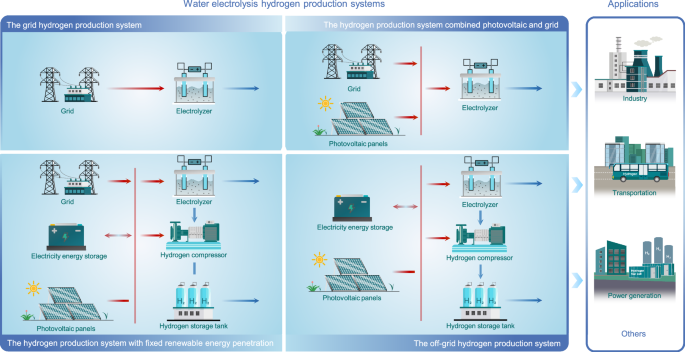Exploring the Potential of Hydrogen Energy in China: A Comprehensive Analysis
Key Ideas
- China is actively promoting the development of hydrogen energy industry to achieve carbon peaking and neutrality goals, with detailed plans outlined for the period 2021-2035.
- Current hydrogen production in China exceeds 50 million tons, making it the world's largest producer, but the majority comes from fossil fuels, highlighting the need for a shift to low-carbon or renewable electricity.
- Research in China is focusing on the economic and environmental feasibility of water electrolysis hydrogen production, demonstrating cost competitiveness and potential for substantial carbon emission reduction in heavy industry.
- Studies are exploring the transportation of hydrogen to other countries, such as Japan, and assessing the cost of hydrogen production systems combined with renewable energy sources in China.
Hydrogen energy is gaining prominence globally as a key player in the transition towards a sustainable energy future. China, with its ambitious energy goals, is actively promoting the development of hydrogen energy industry to align with its carbon peaking and neutrality targets. The country has already outlined detailed plans for the development of hydrogen energy industry from 2021 to 2035 and incorporated hydrogen into its energy resources officially. Despite being the world's largest hydrogen producer, a significant portion of China's hydrogen is derived from fossil fuels, emphasizing the need for a transition to low-carbon or renewable electricity sources for hydrogen production. Researchers in China are extensively studying the feasibility of water electrolysis hydrogen production, showcasing cost competitiveness and significant carbon emission reduction potential in heavy industries. Additionally, studies are exploring the economic and environmental feasibility of various hydrogen production pathways in China, including hydrogen production from grid electricity, renewable energy electricity, natural gas, and coal. The research emphasizes the importance of considering regional differences in resources, energy prices, and grid facilities when planning hydrogen energy systems on a provincial scale. Furthermore, provincial hydrogen energy plans and development policies are tailored based on the resource endowment, energy development capacity, and environmental factors of each province. This comprehensive analysis highlights the significant potential of hydrogen energy in China and underscores the importance of strategic planning and resource optimization for the successful integration of hydrogen into the country's energy landscape.
Topics
Production
Renewable Energy
Environmental Impact
Energy Transition
Carbon Reduction
Economic Feasibility
National Energy Policy
Latest News
5
8
Indian Hydrogen Manufacturers Push for Hydrogen Purchase Obligations to Safeguard Future Investments
Transportation | 3 hours ago
